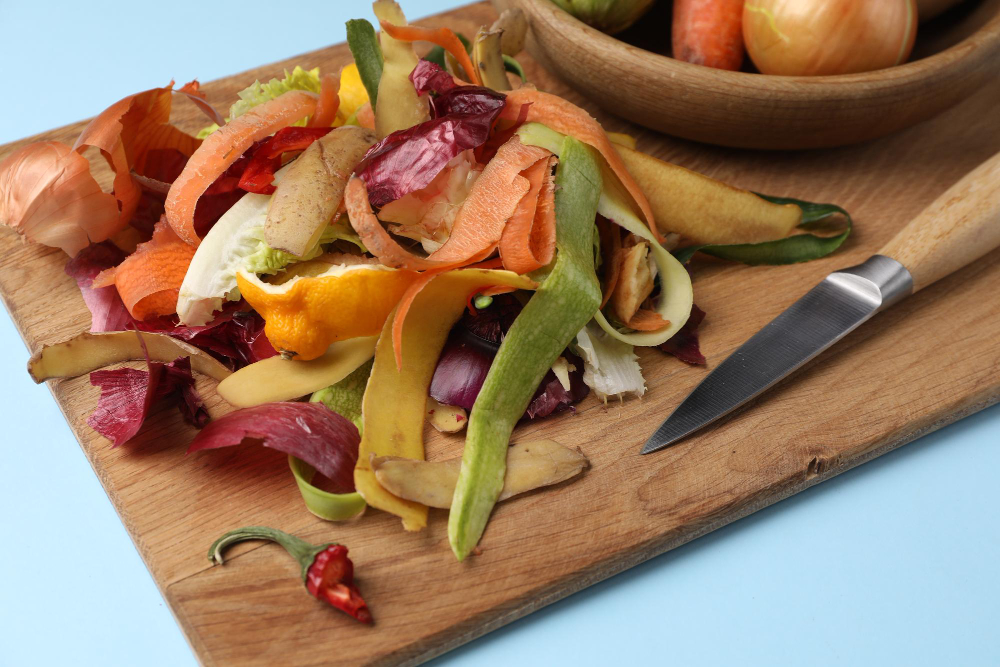
Product walkthrough, trial, POCs, enterprise offering, support and more. Speak with one of our specialists.


Product walkthrough, trial, POCs, enterprise offering, support and more. Speak with one of our specialists.

Climate changes

Every day, Indonesia produces more than 64 million tons of waste, and around 60 percent of it is organic waste[Ref]. Yet, this type of waste has incredible potential if managed properly. Have you ever thought that leftover vegetables from your kitchen or dry leaves in your yard could become a new source of life for plants and soil? With proper management systems, organic waste can be transformed into energy, fertilizer, or a valuable resource for a more sustainable ecosystem.
Organic waste consists of materials that can naturally decompose, such as food scraps, leaves, branches, fruit peels, and other plant-based matter. Unlike inorganic waste that is difficult to break down, organic waste can be turned into nutrient-rich compost. This decomposition process is carried out by microorganisms, earthworms, and other organisms that help convert organic materials into fertile soil.
In addition, organic waste contains carbon and nitrogen, which are essential for soil fertility. By utilizing organic waste, we not only reduce the volume of waste sent to temporary landfills but also help maintain ecosystem balance.
One of the main problems with improperly disposed organic waste is the production of methane in landfills. Methane is a greenhouse gas that is 25 times more potent than carbon dioxide in trapping heat in the atmosphere. By managing organic waste through composting, we can significantly reduce these emissions and contribute to climate change mitigation.
Compost made from organic waste contains essential nutrients such as nitrogen, phosphorus, and potassium. These nutrients improve soil fertility, enhance soil structure, and help plants grow healthier. Nutrient-rich soil also retains water more effectively, reducing the risk of drought during dry seasons.
Farmers can now make use of organic waste from households or markets as natural fertilizer. The use of compost reduces dependence on chemical fertilizers, lowers production costs, and preserves environmental quality. This system aligns with the principles of sustainable agriculture that maintain ecological balance.
When organic waste is managed at the household or community level, the amount of waste that needs to be transported and processed by local authorities decreases. This not only lowers waste management costs but also extends the lifespan of landfills.
The first step is to separate organic waste from inorganic waste. Use a special bin in your kitchen for vegetable scraps, fruit peels, and dry leaves. By starting at home, we can build better habits for caring about the environment and reducing the waste sent to temporary landfills.
Composting is the simplest way to transform organic waste into fertilizer. There are several methods available, from vermicomposting using earthworms to traditional composting bins. Ensure a balance between green materials (fresh leaves, vegetable scraps) and brown materials (dry leaves, sawdust) to optimize the decomposition process.
Mature compost can be directly used to improve soil quality in home gardens or agricultural land. The natural nutrients from compost help plants grow healthier and produce better yields. Some studies even show that plants grown with organic compost have greater resistance to pests and diseases.
Several cities and communities in Indonesia have implemented large-scale organic waste management programs. Joining such programs allows household waste to be processed into fertilizer for collective use. Beyond cleaner environments, these programs also raise community awareness about the importance of proper waste management.
With consistent organic waste management, the positive impact goes beyond just cleaner surroundings. The soil becomes more fertile, plants grow healthier, and the amount of waste sent to temporary landfills decreases drastically. Moreover, the reduction of methane emissions contributes to mitigating global warming. Every small action, such as saving vegetable scraps for composting, becomes part of a larger solution for the planet.
Organic waste is not a problem but an opportunity. From food scraps, dry leaves, and branches, we can create new sources of life for soil and plants. By sorting, composting, and wisely using organic waste, we help protect the Earth while supporting sustainable agriculture.
Start at home, separate your organic waste, make compost, or join local community programs. Every small action makes a big difference for our planet. And don’t forget to share this article so more people can take part in transforming waste into a source of life.






















Jejakin’s green programs combine high-tech monitoring, biodiversity restoration, and community-led initiatives to deliver powerful, sustainable change across ecosystems.








